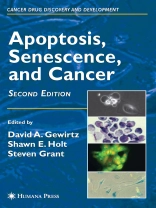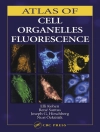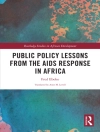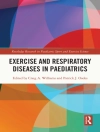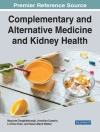Apoptosis, Senescence and Cancer provides insight into established practices and research into apoptosis and senescence by thoroughly examining novel and emerging techniques and research in the fields of cell death pathways, senescence growth arrest, drugs and resistance, DNA damage response, and other topics which still hold mysteries for researchers.
The volume is divided into six easy to follow sections. The first is Apoptosis and Alternative Modes of Cell Death, followed by chapters on Telomeres and Telomerase, Senescence, Genomic Instability and Tumorigenesis. The third part covers DNA Damage Response, Signaling Pathways and Tumorigenesis, while the fourth delves into Resistance and Sensitization. The book concludes with Established Cancer Therapies and a section which looks toward the future with Recent and Developing Cancer Therapies.
In total, this volume provides basic scientists and clinicians with a deeper and more complete understanding of the cellular responses of malignancies which may determine the effectiveness of treatment, both in the initial stages of the disease as well as in disease recurrence.
สารบัญ
Apoptosis and Alternative Modes of Cell Death.- The Intrinsic Pathway of Apoptosis.- The Extrinsic Pathway of Apoptosis.- Evaluating the Importance of Apoptosis and Other Determinants of Cell Death and Survival.- Mitotic Catastrophe.- Autophagy and Autophagic Cell Death.- Regulation and Function of Detachment-Induced Cell Death (Anoikis) in Cancer Progression and Metastasis.- Telomeres and Telomerase, Senescence, Genomic Instability, and Tumorigenesis.- Structure and Function of the Telomere.- Overview of Senescence.- Contributions of Telomerase to Tumorigenesis.- The Role of Telomeres in Genomic Instability.- DNA Damage Response, Signaling Pathways, and Tumorigenesis.- Overview of the DNA Damage Checkpoint.- Interactions Between Myc- and Cyclin-Dependent Kinase Inhibitors in Cancer.- Interplay Between ?H2AX and 53BP1 Pathways in DNA Double-Strand Break Repair Response.- DNA-Dependent Protein Kinase in Repair, Apoptosis, Telomere Maintenance, and Chemotherapy.- Resistance and Sensitization.- Resistance/Signaling Pathways.- Ceramide and Multidrug Resistance.- Chemo- and Radiosensitization Through Inhibition of PI3K/Akt Signaling.- The Advancement of Epidermal Growth Factor Receptor Inhibitors in Cancer Therapy.- Established Cancer Therapies.- Antimetabolites.- Topoisomerase I Poisons and Apoptotic Topoisomerase I-DNA Complexes.- Perturbations of Cellular Functions by Topoisomerase II Inhibitors.- The Significance of Poly-Targeting in Apoptosis Induction by Alkylating Agents and Platinum Drugs.- Contributions of Apoptosis and Senescence to Cytotoxicity Produced by Microtubule-Stabilizing Agents.- Tyrosine Kinase Inhibitors.- Recent and Developing Cancer Therapies.- Monoclonal Antibodies in Lymphomas.- Role of Apoptosis in Anti-Angiogenic Cancer Therapies.- Photodynamic Therapy-Induced Apoptosis.- Modulation of TRAIL Signaling for Cancer Therapy.
